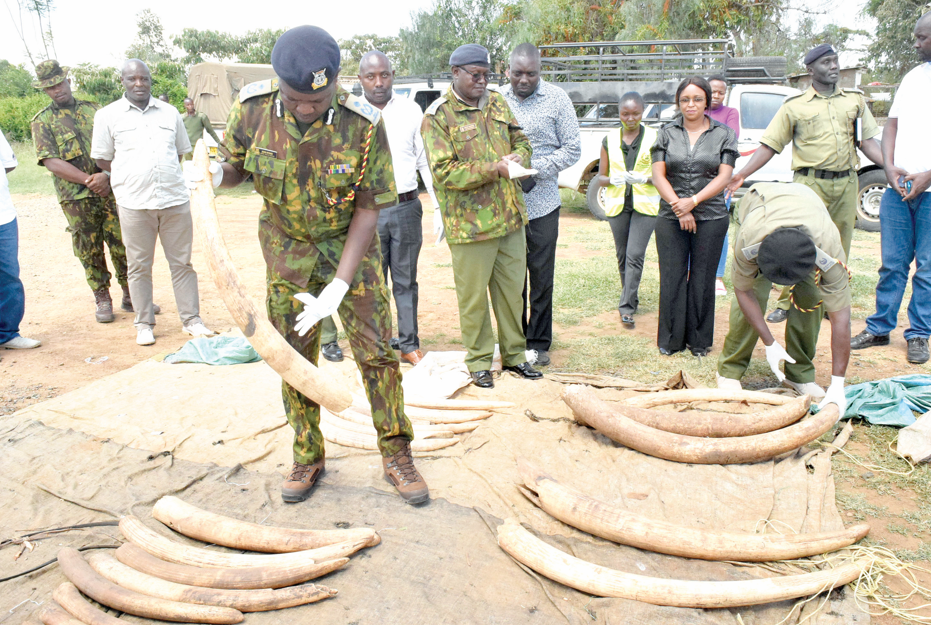Coronavirus led to drop in poaching, says UN report

Though the Coronavirus pandemic led to a reduction in wildlife trafficking, it also led to a sharp increase in the use of wildlife products, a new report reveals.
Dubbed World Wildlife Crime Report 2024, by the United Nations Office on Drugs and Crime’s (UNODC), the survey discloses that seizures of animal species significantly declined to a lower level in 2020 and 2021. The decrease has been attributed to the pandemic catalysing a trend towards more rigorous enforcement and closures of wildlife markets.
“Because of the stronger enforcement, sellers reported not being able to trade wild animals and their derivatives openly during and immediately after the pandemic. Fear of wildlife/animals as a source of disease transmission also contributed to this decrease,” Ghada Waly, UNODC Executive Director.
The report says despite not being able to sell or buy wildlife products openly in markets, many sellers and interviewees said that the demand for wildlife overall did not decrease. Instead, use of wildlife products increased as the availability of imported goods decreased during the pandemic, forcing local people to rely more heavily on wildlife products to sustain their livelihoods.
Wildlife trafficking
That was the reason some illegal items continued to be available, albeit concealed. For example, in some markets, one could still obtain wild meat, although not as readily as before because the products ceased to be openly displayed but they were still available.
“While the Covid-19 pandemic has reshaped some aspects of wildlife trafficking, the underlying challenges remain. Trafficking and illicit trade of protected wildlife species continue to pose a significant threat to biodiversity worldwide,” reads part of the report.
Reduction in annual air freight volume in 2020 is also cited as another reason for the decline in wildlife trafficking. In 2020, there was a decrease in air passenger numbers, down over 60 per cent compared to the previous year, and this trend was recovering slowly in 2021. This decrease may have contributed to the lower number of wildlife seizures in 2020 and 2021, although its impact on trade volumes may be less significant, as bulk shipments are not typically moved in passenger baggage.
Pandemic disruption
The reported percentage of seizures linked to air transport decreased greatly in 2020–2021, likely reflecting the pandemic disruption to passenger travel. However, the percentage of seizures from shipments increased during those years, which may be in part linked to the pandemic, the rapid development of courier shipping in general, and the increasing reliance on e-commerce.
“There was a very large reduction in wildlife trafficking from personal baggage in air transport in 2020 and 2021 owing to restrictions on the movement of people in many countries and a massive fall in air passenger numbers. However, the impact of other possible influences of the pandemic on seizure trends, for example market restrictions, different consumer choices, changes in enforcement effort, and interruption of official reporting, require more careful interpretation,” reads another part of the report.
The report says the reduction in some types of wildlife seizures during 2020–2021 is not due to a decrease in enforcement effort resulting from workplace restrictions or other factors, as many people would think. A review of available data indicated different trends have been observed in the global interception of various forms of trafficking.
Trends in reported seizures from other contraband markets that were examined show that records of cocaine, for example, reached global highs during 2020 and 2021, and methamphetamine seizures in East and South-East Asia also remained high during the same period.
The report in general reveals that despite two decades of concerted action, wildlife trafficking persists worldwide with more than 4,000 species affected. This is why more consistent enforcement to tackle both supply and demand, effective implementation of legislation, including anti-corruption laws, and stronger monitoring and research are needed.
According to Ghada Waly, UNODC Executive Director, wildlife crime inflicts untold harm upon nature, and it also jeopardises livelihoods, public health, good governance and our planet’s ability to fight climate change.
Species depletion and ecosystem disruption caused by wildlife crime can undermine the many socioeconomic benefits that people derive from nature.








